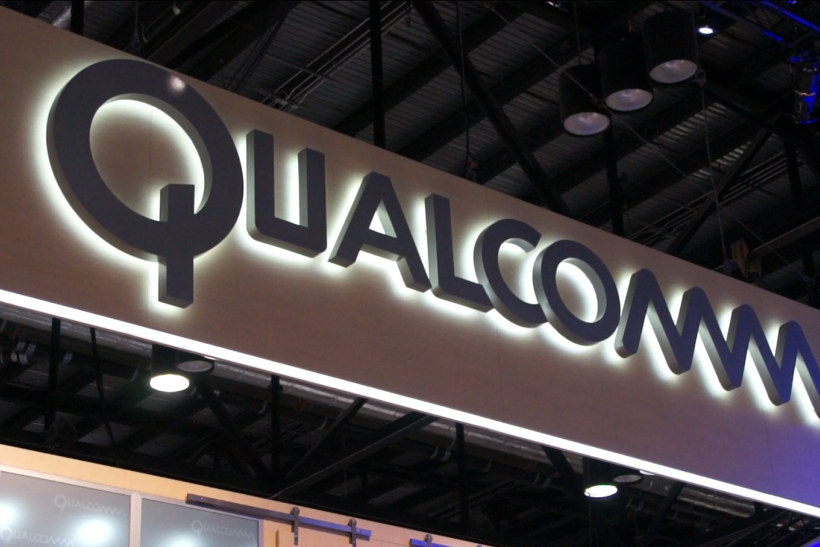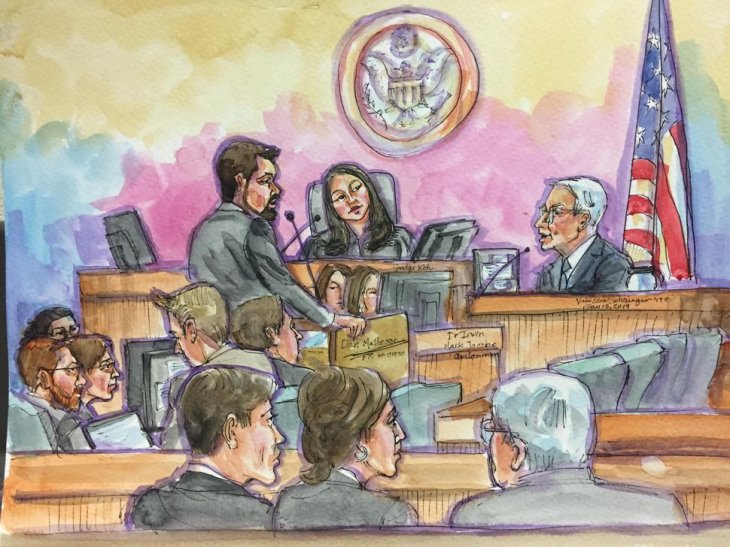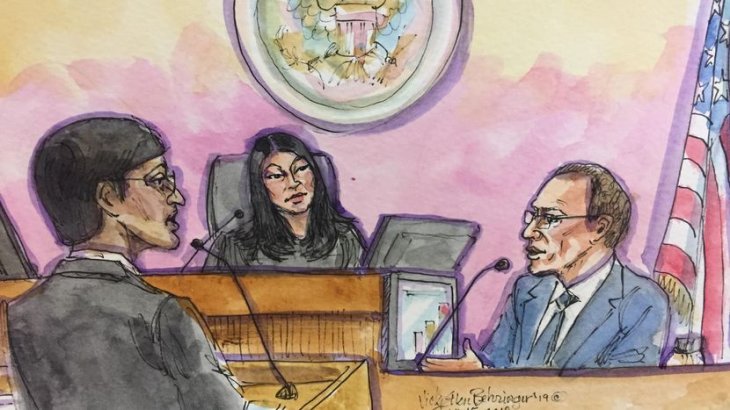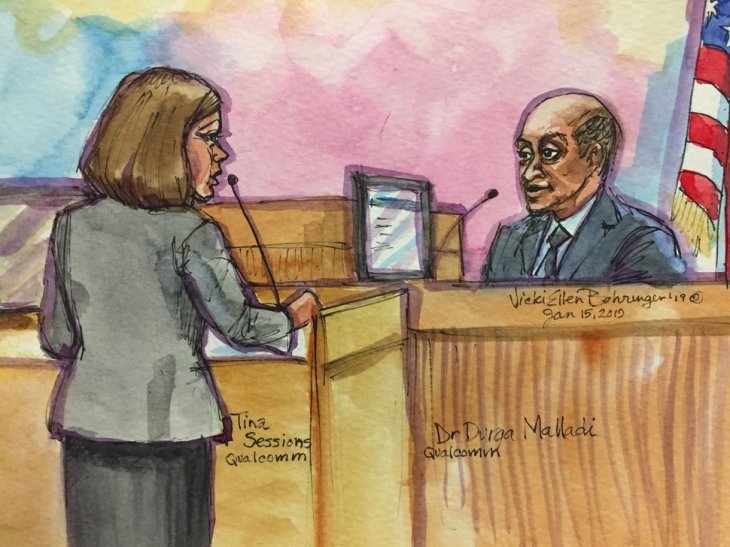Qualcomm Says Why Its Chips Are Worth The Fees, Defending In FTC Trial
Dhir Acharya - Jan 17, 2019

On Tuesday, Qualcomm had the first chance to defend itself in the lawsuit with FTC, striking back the accusations.
- Qualcomm Announces Snapdragon 870; To Debut Soon In Xiaomi, OnePlus, Motorola Smartphones
- Qualcomm Announced Snapdragon 888, The Next Mobile Chip For High-End Smartphones
- At Least Five Smartphones Will Feature Snapdragon 875 & 100W+ Charging Support, New Leak Says
On Tuesday, during a trial under the instigation of the US Federal Trade Commission, Qualcomm tried to show that there would be no smartphones if it hadn’t been for the company and its chips.
The battle between Qualcomm and FTC has been going on since January 4, in which Qualcomm is alleged of monopolistic practices and overcharging its patent licensing. FTC later wrapped up its case on Tuesday afternoon.
Qualcomm had the first chance, on Tuesday, to present its own case. To sum up, the company claimed three things: one, FTC filed the lawsuit based on “flawed legal theory”; two, it chips are chosen for being the best devices; and three, it has never stopped providing its customers with chips regardless of battling over licenses.
At the trial, Qualcomm called to Irwin Jacobs – its co-founder and Durga Malladi – the senior VP in charge of 4G/5G operations. The two talked about how Qualcomm worked to innovate its wireless tech.

Irwin Jacobs
According to Jacobs, a pioneer in mobile communications technology, he came up with the idea of using CDMA (code division multiple access) when he was driving in San Diego. The company gave the technology to a fan to see how it worked.
Jacob continued by saying Qualcomm made the decision to begin licensing the technology so it could afford further research and development of CDMA. After AT&T, Motorola, Nokia, and other companies became its licensees. Licensees had to pay an upfront fee, followed by royalty fee based on their sales of CDMA devices.
“Everything was negotiated,” said Jacobs. He said Qualcomm wanted to make CDMA used around the world and charged just enough fee not to disrupt the progress.
Today, CDMA and GSM technologies, which are fundamentally different, are still used by US wireless carriers for their voice networks. While Verizon and Sprint use CDMA, T-Mobile and AT&T use GSM like most companies in the world. Qualcomm holds nearly all important CDMA-related patents, and eventually, the technology supported 3G networks, allowing data delivery.
As testified by Jacobs, the industry was aware of the importance of providing internet access and data communications to mobiles. And all 3G technologies are necessarily based on its CDMA.
The battle over licenses
Two years ago, with the support from Intel and Apple, FTC filed a lawsuit against Qualcomm. The lawsuit says that Qualcomm practices monopoly and harmed competition over its chips to maintain the leader in the industry. According to FTC, because of charging extremely high royalty fees, Qualcomm not only blocked rivals from entering the market but it also indirectly raised phones’ prices which consumers had to suffer.
To prove its argument, FTC called for witnesses from Apple, Intel, Samsung, and Huawei as well as experts to testify its accusation against Qualcomm. Notably, the trial disclosed a look inside the smartphone industry, revealing how companies fight over dominance and profit.

Professor Carl Shapiro
Professor Carl Shapiro at the University of California appeared at the trial as FTC’s expert witness, testifying that being an innovator doesn’t mean Qualcomm can also be a monopoly. Shapiro said Qualcomm should be highly appreciated for the innovations it has brought. But the point is there should be no bars blocking smaller or less innovative companies from competing with the market leader.
Shapiro testified that Qualcomm is taking advantage of its power as the market leader and the dominant to charge excessive royalties for its patents. Consequently, that increases the cost rivals have to bear, decreases their competitive advantages and in turn, consolidates its monopoly power.
The chipmaker argued that its patents are worth the fees, and the range of patents it owns and the innovations it has brought are the proof. On Friday, Qualcomm’s CEO Steve Mollenkopf defended his company, saying that it has applied the best way to sell chips to phone makers.

Durga Malladi
On Tuesday, on behalf of Qualcomm, Malladi took the stand, testifying about Qualcomm’s 3G, 4G, and 5G technology innovation and patent.
In March 2018, Qualcomm was the only company that could make a chip for millimeter wave 5G networks. At that time, 5G waves could travel extremely fast but in short distances only and they could be blocked by obstacles like walls and trees. The chipmaker has worked to fix those issues so that 5G phones in 2019 can run on millimeter networks of AT&T and Verizon.
Malladi said:

Featured Stories

ICT News - Feb 20, 2026
Tech Leaders Question AI Agents' Value: Human Labor Remains More Affordable

ICT News - Feb 19, 2026
Escalating Costs for NVIDIA RTX 50 Series GPUs: RTX 5090 Tops $5,000, RTX 5060 Ti...

ICT News - Feb 18, 2026
Google's Project Toscana: Elevating Pixel Face Unlock to Rival Apple's Face ID

Mobile - Feb 16, 2026
Xiaomi Launches Affordable Tracker to Compete with Apple's AirTag

ICT News - Feb 15, 2026
X Platform Poised to Introduce In-App Crypto and Stock Trading Soon

ICT News - Feb 13, 2026
Elon Musk Pivots: SpaceX Prioritizes Lunar Metropolis Over Martian Colony

ICT News - Feb 10, 2026
Discord's Teen Safety Sham: Why This Data Leak Magnet Isn't Worth Your Trust...

ICT News - Feb 09, 2026
PS6 Rumors: Game-Changing Specs Poised to Transform Console Play

ICT News - Feb 08, 2026
Is Elon Musk on the Path to Becoming the World's First Trillionaire?

ICT News - Feb 07, 2026
NVIDIA's Gaming GPU Drought: No New Releases in 2026 as AI Takes Priority
Read more

ICT News- Feb 18, 2026
Google's Project Toscana: Elevating Pixel Face Unlock to Rival Apple's Face ID
As the smartphone landscape evolves, Google's push toward superior face unlock technology underscores its ambition to close the gap with Apple in user security and convenience.

ICT News- Feb 19, 2026
Escalating Costs for NVIDIA RTX 50 Series GPUs: RTX 5090 Tops $5,000, RTX 5060 Ti Closes in on RTX 5070 Pricing
As the RTX 50 series continues to push boundaries in gaming and AI, these price trends raise questions about accessibility for average gamers.

ICT News- Feb 20, 2026
Tech Leaders Question AI Agents' Value: Human Labor Remains More Affordable
In a recent episode of the All-In podcast, prominent tech investors and entrepreneurs expressed skepticism about the immediate practicality of deploying AI agents in business operations.
Comments
Sort by Newest | Popular